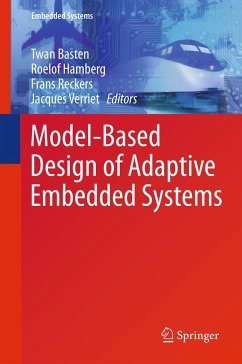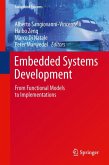Model-Based Development of Adaptive Embedded Systems focuses on the development of adaptive embedded systems both from an architectural and methodological point of view. It describes architectural solution patterns for adaptive systems and state-of-the-art model-based methods and techniques to support adaptive system development. In particular, the book describes the outcome of the Octopus project, a cooperation of a multi-disciplinary team of academic and industrial researchers. This industry-as-laboratory project has used the professional printing domain to validate the project results in an industrial context.
Model-Based Development of Adaptive Embedded Systems is targeted at both academic researchers and industrial practitioners. It provides state-of-the art surveys of important aspects of adaptive embedded systems, including system architecture, software architecture, system design, and control strategies. These topics are addressed from a systems engineering perspective by researchers from different disciplines including systems engineering, software engineering, control theory, computer science, and electrical engineering with a clear focus on the industrial validation of the research outcome.
Dieser Download kann aus rechtlichen Gründen nur mit Rechnungsadresse in A, B, BG, CY, CZ, D, DK, EW, E, FIN, F, GR, HR, H, IRL, I, LT, L, LR, M, NL, PL, P, R, S, SLO, SK ausgeliefert werden.









